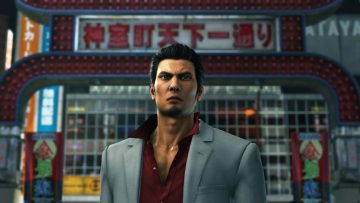TSSZ News Investigates: Video Game Piracy
The video game industry is a big business. Actually, that may be somewhat of an understatement. As previously reported on TSSZ, the video game industry could surpass the music industry in terms of size and profit. Last October, Nielsen Media Research, a the premiere media research company found last October that Television viewership in the 18-34 year old male demographic, historically the highest in terms of viewer ship, was being lost to the unstoppable combination of video games and the internet.
Each of these other industries, television, music and movies have seen a a dramatic explosion in piracy within the last few years, thanks to mostly to the widespread proliferation of broadband internet access, and new video compression technologies like DiVX. Ever since the success of early emulators however, video game piracy has plagued the industry. With older games, those from the SNES and Genesis era only taking up a few megabytes each, the technology available ten years ago was sufficient to foster the illegal ROM (ROM stands for Read Only Memory, the digital contents of a game, which is copied onto a computer through a hardware device known as a “copier”) scene.
But while the theft of intellectual property in the mediums of television, music and movies is migrating from the real world (in the forms of video and audio cassettes, and more recently CDs and DVDs) to the digital world, video game piracy seems to be on the increase in the physical world. At least, in the United States.
Hong Kong has long been the capital of intellectual property infringement. In the past decade its given rise to a tremendous number of Famicom (Japanese Nintendo Entertainment System) clones, all of which violate the patents on the system held by Nintendo. But it seems that these systems are slowly seeping into the United States.
Take, for example, the Bayshore Mall, in Eureka California. Like many other malls, this shopping center, located on the Northern California coast, in Eureka, CA, rents space in hallways connecting the stores to small shopping kiosks. In this particular mall, kiosks rotate fairly regularly. It is not uncommon to see such islands of commerce last a month before shutting down. The strength and weakness of these kiosks is that they sell niche items. If their inventory is in high demand they do well, if not, they go under.
A few months ago, kiosk called “Toys 4 all” appeared about 50 feet down the hall from the local GameStop. It sells cheap toys made in Hong Kong and China, they type of fare one usually finds as prizes in carnival games. However, this kiosk has survived by selling Famicom clones from Hong Kong. Of the kiosk’s original inventory, these pirated consoles are the only item to sell out. The specific models sold very from time to time, depending on what their distributor has in stock.
Most recently, they featured the “Super Joy 3 Power Player 7600 in 1” on display. The unit looks like a blue Nintendo 64 controller, with an immovable joystick, standard RCA hookups, a power supply hookup (will also run on AA batteries) and a second player port built in. It comes with a small lightgun and a modified Sega Genesis controller (also blue). Famicom games are plugged into the port normally used for memory and rumble packs, which has been significantly enlarged to allow the 60-pin cartridges to fit. Included is a 76 in 1 cartridge, which claims to contain 76 NES games, but really features more like 20. The games include big first and third party titles, as well as games from smaller Japanese companies unknown in the United States.
The woman working the cash register was happy to answer questions about the unit itself, but seemed unable to answer questions involving its legality, or where it came from, simply that they received the unites from their distributor, and that they were a high-selling item. A Bayshore Mall representative refused to comment, saying that the mall was not personally involved in every bit of inventory passing through the stores. After numerous attempts to contact Nintendo’s anti-piracy division about the issue, TSSZ has still received no response.
However, as of March 20, 2004, there was no unit on display at the kiosk. However this could be contributed to any of three possibilities. First, that the store sold out, as they do every few weeks, and had not yet received a new shipment (there are about 20 units in each shipment). Second, that the Mall officials intervened, or finally that Nintendo threatened legal action. Since neither the Mall or Nintendo will comment further on the situation, and the store employees only response to the system’s absence is “We must be out,” any guess is equally valid at this point.
Video game piracy is defiantly on the rise. With broadband connecting more people to the internet at higher speeds, and Hong Kong pirate consoles proliferating in the North American market, the average gamer has a lot to worry about, in terms of anti-piracy policies that may be developed by industry publishers. Right now, the problem is very minor, considering that despite such widespread piracy, the video game industry is growing at a phenomenal rate, the industry has taken very relaxed approach to the problem, mostly sending cease and desist letters, though Nintendo’s iQue is a very unique solution to the problem. It only remains to see how effective it is.
As soon as the industry starts shrinking, it is reasonable that harsher measures will be taken to protect intellectual property. As previously reported on TSSZ, digital fingerprinting technology is starting to become more prevalent in the industry. More aggressive uses of such anti-piracy technology, similar to what is built into Sonic Team’s Phantasy Star Online, which could potentially be used to invade your privacy in the name of curbing piracy.






